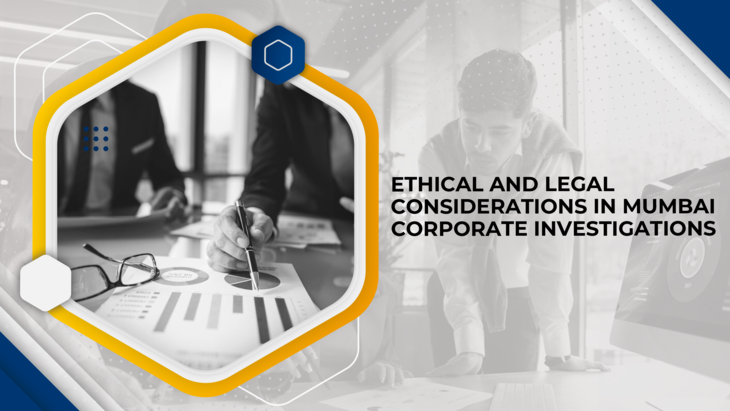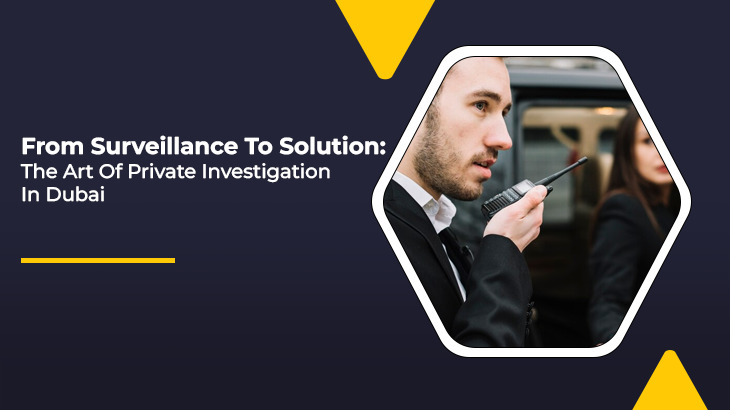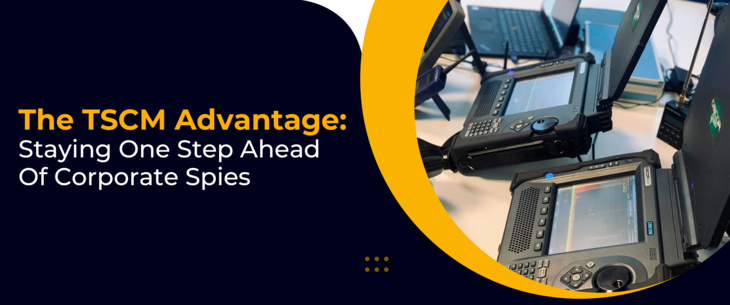Due to the growth of the population and the situation in Kolkata, the demand for skilled and professional investigators for asset related cases has become inevitable. Whether a person is in need of high-level financial planning for personal purposes or an organization is looking for ways to secure its investments, engaging a detective for asset investigation can be a huge advantage. This article discusses some questions regarding the need for professional asset investigations in Kolkata and the need for using professional asset searches by identifying the numerous instances when looking for an expert’s help is the right thing to do.
Understanding Asset Investigations
Investigations of the assets entail a comprehensive identification of the tangible or intangible resources that belong to the involved person or legal entity. Possible findings of these investigations include the general financial status of the subject and his or her legal mode of operation, any properties that the subject has not disclosed to anyone, any extra sources of income that the subject may be involved in, and any possible liabilities that the subject might be involved in. They are often employed in various scenarios, including:They are often employed in various scenarios, including:
- Divorce and Family Law Cases: It adapts to perceptions regarding the influence of gender on various aspects of life as well as to provide for a fair partition of rights in cases of dispute.
- Corporate Due Diligence: To evaluate the business partner’s performance and financial stability.
- Debt Recovery: In order to identify and evaluate which amount needs to be recovered from the stated assets,.
- Fraud Investigations: In order to find additional or embezzled funds Unlike in the Hades scenario, where extra money can be found,.
- Legal Proceedings: as supporting information and thus backing up legal proofs and assertions.
Since the tasks involved are complex and delicate, there is no better way to go than by hiring a professional for the asset investigations.
The Intricacies of Asset Investigations
As stated, it is critical to distinguish an asset investigation from a background check and recognize the differences in the intricacies of the two processes.
Investigations of assets are both systematic and methodical and necessitate certain expertise, compliance with prudent standards and methodologies, and access to databases. The personnel involved in investigations for this corporate entity must possess the competency levels required to conduct proper and surreptitious investigations that will yield proper and reliable results. Here are some of the key intricacies involved:Here are some of the key intricacies involved:
Legal Knowledge: It is important to keep in mind that legislators are well aware of the legal requirements for identifying the assets of a targeted citizen. They keep themselves aware of the legal right to privacy, the prevailing rules and regulations safeguarding data, and the legalities involved in acquiring and utilizing the information.
Access to Resources: It is also important to note that professional investigators have almost full access to public databases, but at the same time they have access to dozens of paid databases, which are not available to everyone. This access enables them to get both extensive and credible information.
Analytical Skills: Asset investigations, for the most part, include assessment of computerized existing records and payment systems, familiarity with patterns and protocols, as well as perception of irregularities. While professionals have what it takes to analyze data and derive the right insights properly, such confusion will hinder their effectiveness.
Discretion and Confidentiality: This informality of such investigations suggests that the issue of confidentiality is of great importance when it comes to asset investigations. Investigations are carried out in a clandestine manner, so much so that the people of interest are not conscious of the assessment being done on them.
Technical Expertise: Often, the current asset search includes digital investigation, which is a significant integration of technology and cyber investigation.
Why hire a professional in Kolkata?
It would be crucial to understand why hiring a professional from Kolkata would be essential or serve as a real boon.
Field work in asset investigation requires one to identify the kinds of assets that define the area of study and are worth investigating. Kolkata is a historical city with immense cultural and economic appeal, and this makes it an interesting study area to undertake an asset investigation. Here’s why hiring a professional detective agency in Kolkata in this vibrant city is especially advantageous:
- Local Expertise and Knowledge: Sampling shows that Kolkata has a very different legal and regulatory structure, which may play a role in investigations of assets. Lawyers, attorneys, and other legal workers, are knowledgeable about property laws, business laws and rules, and even some financial laws and practices within the area. It is particularly important given that executing the asset investigation process requires understanding the local contexts of the operating company and its competitors well.
- Network of Contacts: The legal advisers in Kolkata tend to have a large database of people and businesses, such as lawyers, financial consultants, and bureaucrat politicians. This network can help emergency investigators carry out their tasks faster and more efficiently in any given scenario.
- Cultural Sensitivity: Indeed, when it comes to research, having a comprehension of the culture is highly important. With professionals based in Kolkata, they are in a position to understand the culture and people’s conduct in such areas, hence undertaking investigations with adequate cultural implications. This is especially true in cases of family or partnership problems, where relations may be somewhat tense.
- Efficient Resource Utilization: Local professionals can efficiently utilize resources such as local databases, public records, and on-the-ground intelligence. Their familiarity with the local infrastructure enables them to gather information more quickly and accurately.
- Cost-Effective Solutions: Engaging a local professional can be more cost-effective than hiring an out-of-town investigator. Local professionals are likely to have lower operational costs and can offer competitive pricing for their services.
Scenarios Where Professional Asset Investigations Are Essential
Several scenarios underscore the importance of hiring a professional for asset investigations in Kolkata. Let’s explore some common situations:
- Divorce Proceedings: In divorce cases, accurately identifying and valuing assets is crucial for a fair settlement. Hidden assets, undisclosed income, or undervalued properties can significantly impact the outcome. A professional investigator can uncover these hidden assets, ensuring a just division.
- Corporate Mergers and Acquisitions: When considering a merger or acquisition, conducting thorough due diligence is vital. Asset investigations can reveal the true financial standing of the target company, including any hidden liabilities or risks. This information is essential for making informed decisions and negotiating favorable terms.
- Debt recovery: For creditors, recovering debts can be a challenging process, especially if the debtor attempts to hide assets. Professional investigators can trace assets, identify hidden properties, and provide valuable evidence to support legal actions for debt recovery.
- Fraud Detection and Prevention: In cases of suspected fraud or embezzlement, timely and accurate asset investigations are crucial. Professionals can uncover fraudulent activities, trace embezzled funds, and identify the individuals involved, helping businesses protect their interests and pursue legal remedies.
- Estate Planning and Inheritance Disputes: Asset investigations can play a vital role in estate planning and resolving inheritance disputes. Identifying all assets, including those that may not be immediately apparent, ensures a comprehensive and fair distribution among heirs.
Choosing the Right Professional
When selecting a professional for asset investigations in Kolkata, it’s essential to consider several factors to ensure you receive the best service possible:
- Reputation and Track Record: Look for professionals with a proven track record of successful asset investigations. Reviews, testimonials, and case studies can provide insights into their reputation and capabilities.
- Experience and Expertise: Choose professionals with extensive experience and expertise in asset investigations. Specialization in areas relevant to your needs, such as family law, corporate investigations, or fraud detection, can be particularly beneficial.
- Licensing and Certification: Ensure that the professional holds the necessary licenses and certifications required for conducting asset investigations in Kolkata. This ensures compliance with legal standards and regulations.
- Methodology and Approach: Understand the methodology and approach the professionals employ in their investigations. Transparency in their processes and a clear explanation of how they gather and analyze information are crucial.
- Confidentiality and Discretion: Confidentiality is paramount in asset investigations. Ensure that the professional prioritizes discretion and maintains the highest standards of confidentiality throughout the investigation.
Conclusion
In the dynamic and diverse city of Kolkata, professional company asset investigations are essential for protecting financial interests, making informed decisions, and ensuring justice. The expertise, resources, and local knowledge that professionals bring to the table are invaluable in navigating the complexities of asset investigations. Whether you are dealing with a personal matter, a business transaction, or a legal dispute, hiring a professional for asset investigations can provide the clarity, accuracy, and peace of mind you need.
Investing in professional asset investigations is not just a prudent decision; it is a strategic move that can safeguard your interests and help you achieve your objectives with confidence. As Kolkata continues to grow and evolve, the role of professional detective agency for asset investigations will only become more critical in ensuring transparency, fairness, and accountability in financial matters.











